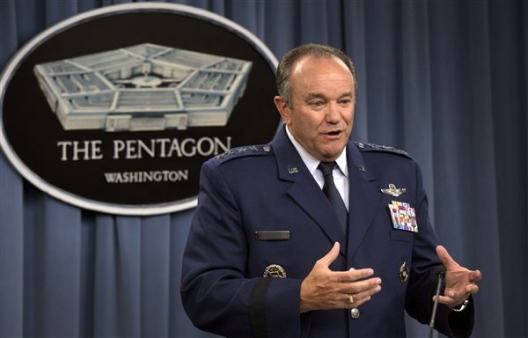 When NATO granted new powers to its top military commander last week, enabling Gen. Philip Breedlove to mobilize quick-reaction troops for deployment against a gathering threat, it marked a step forward in the alliance’s attempt to transform itself into a more fleet-footed fighting force.
When NATO granted new powers to its top military commander last week, enabling Gen. Philip Breedlove to mobilize quick-reaction troops for deployment against a gathering threat, it marked a step forward in the alliance’s attempt to transform itself into a more fleet-footed fighting force.
Breedlove’s new powers essentially mean that when he sees an unfolding crisis, he is authorized to mobilize NATO’s new Very High Readiness Joint Task Force and to send troops to the nearest flight line to await final orders for takeoff. But he still must get the OK from the alliance’s highest decision-making body — the North Atlantic Council — before actually deploying the troops, and it’s unclear if the alliance can take the next step to simplify that political process.
Reaching a quick political consensus is no small task in a 28-nation alliance, said Jonathan Eyal, an expert on NATO with the London-based Royal United Services Institute, especially when dealing with an adversary as cunning as Russia.
“The way Russia hopes to paralyze NATO’s decision making is to create a threat to an alliance country that is big enough to be seen as serious, but not serious enough to trigger a unified response from the NATO member states,” Eyal said….
NATO’s spearhead force is typically ready to respond to a crisis within about five days, but its state of readiness can be heightened to 48 hours when there are signs of trouble. But if a crisis emerged unexpectedly, Breedlove’s new powers could potentially shorten response times by a couple days. Instead of standing by, troops and aircraft can now be mobilized while the Security Council holds simultaneous meetings on whether to approve the deployment.
Without that quicker political decision making, Breedlove’s new authorities would be rendered meaningless, Eyal said….
Breedlove, speaking in Brussels last week, said his new authorities to alert, mobilize and stage troops for deployment is another tangible sign that NATO is adapting.
“I think what we have done is make a logical step in the way to allow the military forces to get in a position to be able to rapidly execute a political decision,” Breedlove said. “I think we are in a very good place. I think what we have done sets us for success.”
Image: Gen. Philip Breedlove, July 1, 2014 (photo: Glenn Fawcett/Department of Defense)
